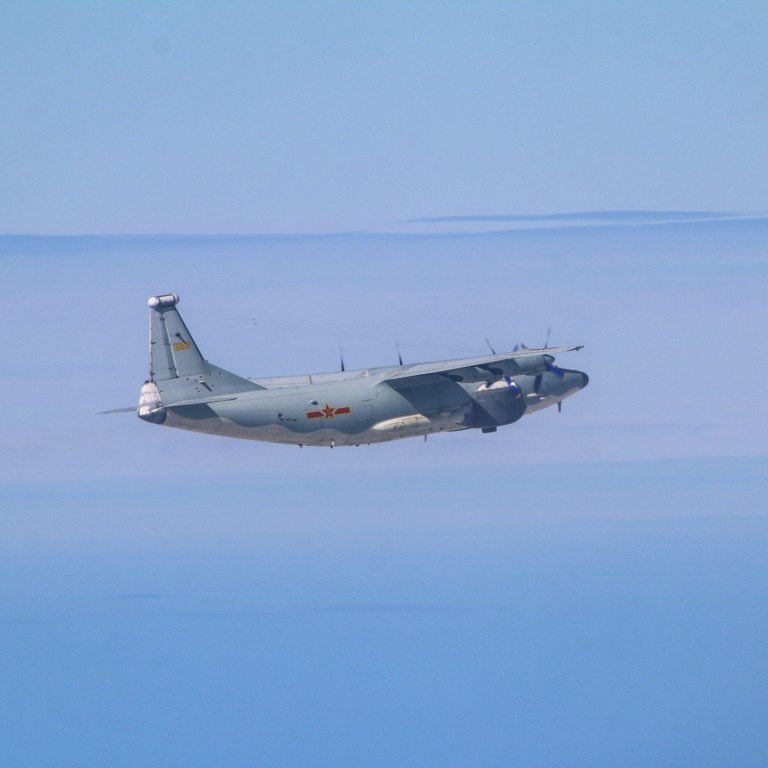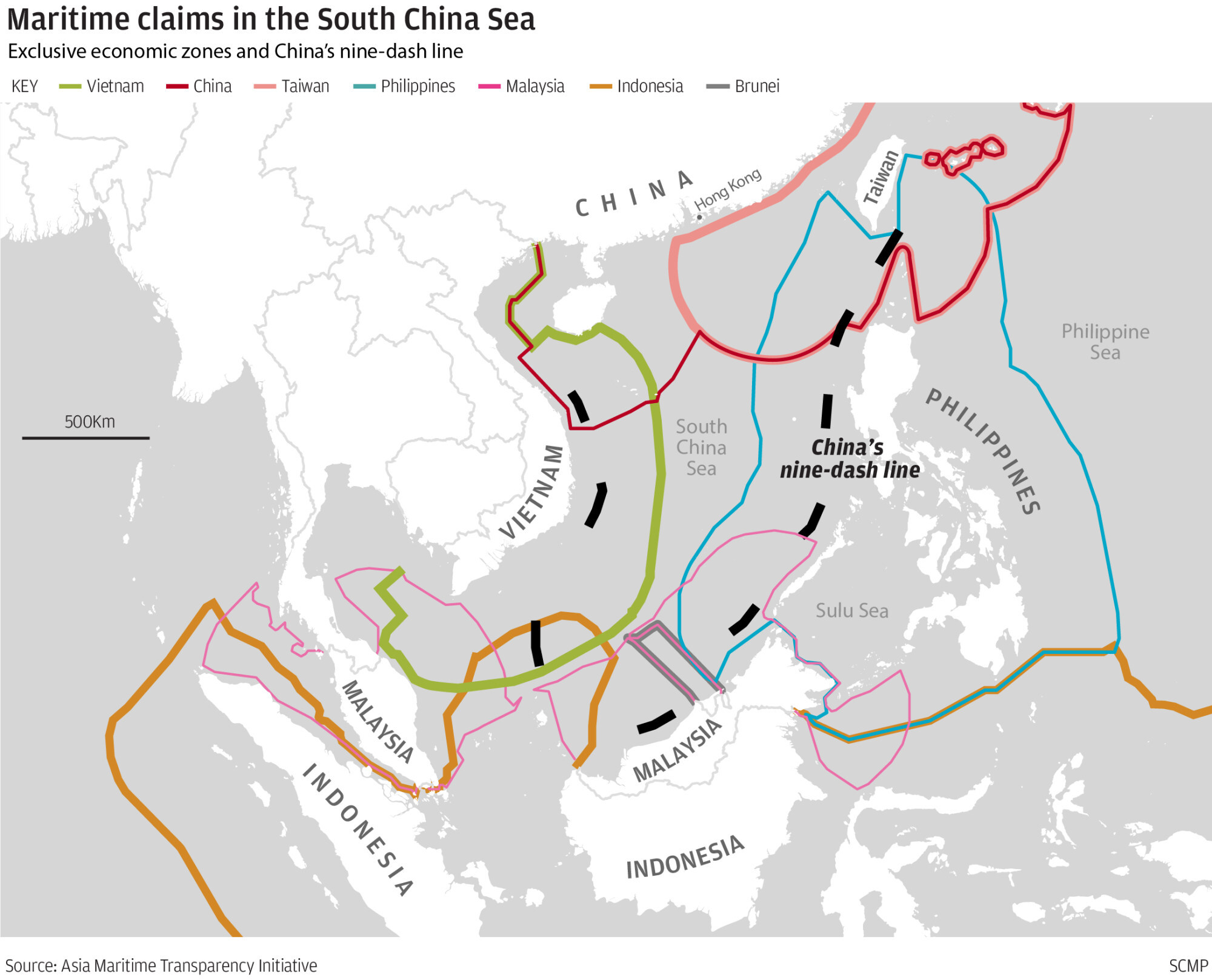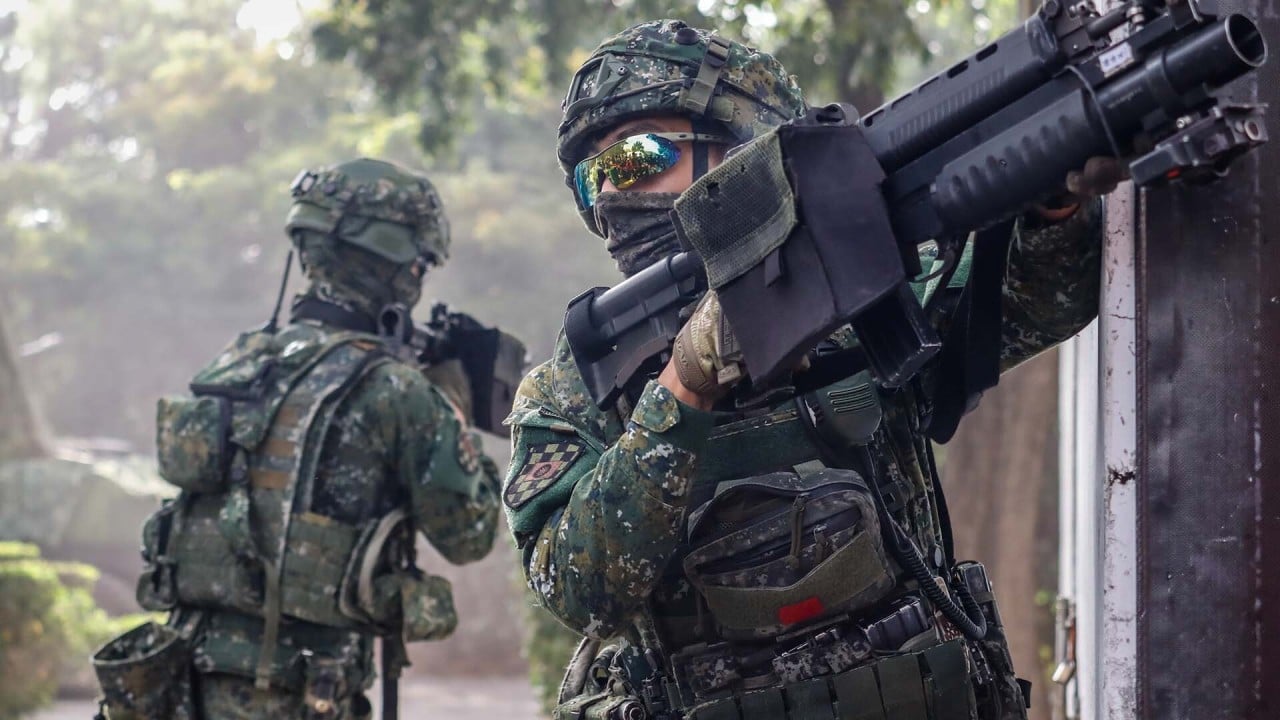
Taiwan says Chinese warplane crashed in disputed South China Sea
- Intelligence chiefs tell legislature that a Y-8 anti-submarine vessel came down in the disputed waters earlier this month
- Beijing has not confirmed the reports but the briefing says the PLA launched search and rescue operations under the guise of training drills
The intelligence bureau chief delivered a report that said the crashed plane was a Shaanxi Y-8 anti-submarine warfare aircraft. He added that soon after the crash, the PLA announced navigation restrictions in the adjacent waters to carry out search and rescue operations in the name of “military training”.
It said the operations were conducted in the waters close to the disputed “nine-dash line”, which marks the maximum extent of China’s historical claims over the South China Sea.
Taiwanese troops prepare for urban warfare with PLA in latest drill
Its claim over the waters and the islands within it – including the Paracels, Spratleys, Zhongsha and the Pratas – are disputed by several countries, including the Philippines and Vietnam.
The report said the PLA wanted to use the incident to “test the limits of the US and other South China Sea claimants” while the world was focused on the Russian invasion of Ukraine.
Asked to elaborate on the incident, bureau director Chen Ming-tong declined to give further details, saying the entire case involved sensitive intelligence issues.
Chen was invited to the legislature on Thursday along with other senior officials, including defence minister Chiu Kuo-cheng and Mainland Affairs Council vice-chairman Chiu Chui-cheng, to report on the cross-strait situation following the invasion of Ukraine.

Chen confirmed a Vietnamese journalist’s report that a Chinese military patrol plane had crashed off the coast of Vietnam.
On Sunday the journalist, Duan Dang, citing sources familiar with the matter, tweeted that the PLA Air Force had lost contact with a Y-8 maritime patrol aircraft as it flew over an area of water southwest of Sanya in China’s Hainan province on March 1.
He said China had launched a search-and-rescue operation and “concealed it with drills” between March 1 and 2.
China never acknowledged the incident but it did announce that it would carry out a week of military drills until March 15 in an area between its southern province of Hainan and Vietnam and warned shipping to stay away.
Taiwan’s ageing tanks to get an upgrade to boost defences against PLA
Meanwhile, defence minister Chiu said a conflict with the mainland would be a disaster for all sides regardless of the outcome.
He said no matter who won the war, it would be a “miserable victory” and so it was necessary for the mainland to “thoroughly think it over”.
Beijing considers Taiwan part of its territory that must be brought under its control – by force if necessary.
It has ramped up pressure on the island by sending warplanes and staging war games near its coast to try to force President Tsai Ing-wen of the independence-leaning Democratic Progressive Party to accept the one-China principle.


